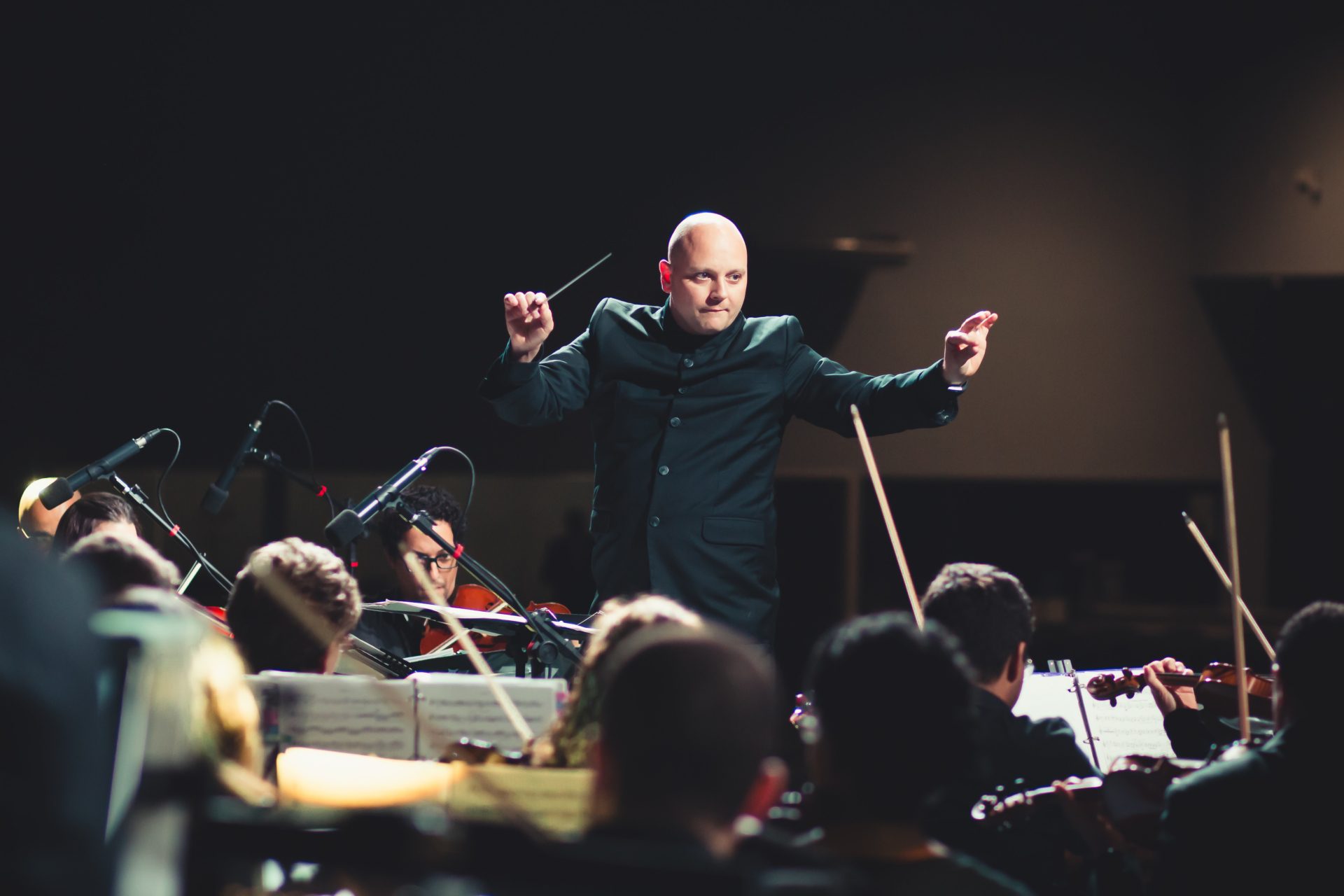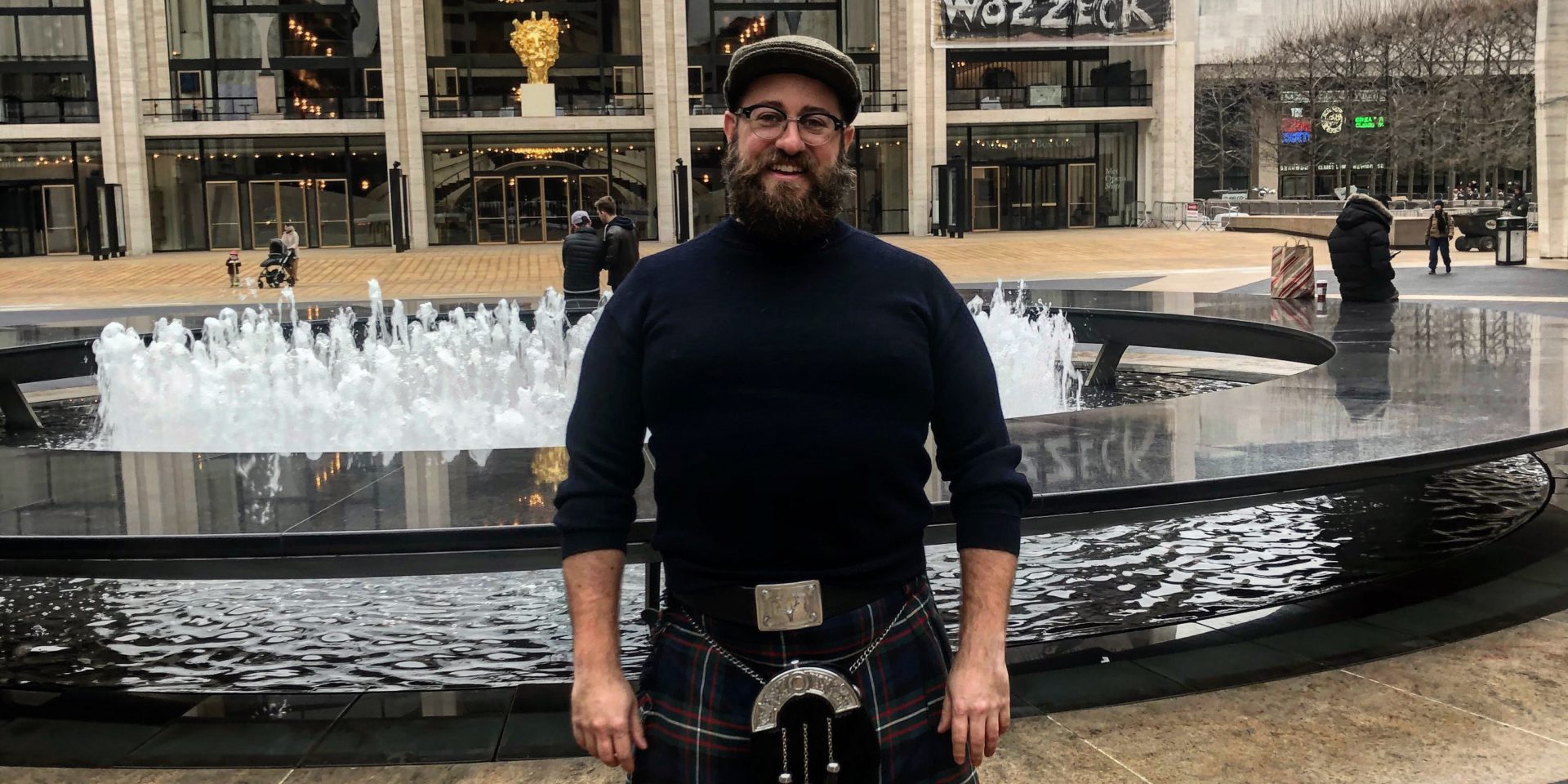
Industries across the board have been dealt a crushing blow due to the Coronavirus pandemic. It has affected the careers of millions of people who largely remain unemployed all this time later with some in a great deal of confusion as to when their professional lives will resume.
Two that have been affected the hardest are Broadway (or theatre as a whole) and opera. Gone are the days, for now, when you can get dressed to the nines for a fun show, a life-changing concert, a hilarious comic set and anything else that revolves around being amongst hundreds of other people in one setting.
It is troublesome to say the least for people on both sides of the coin. You have the ones providing entertainment who want to earn a living again and then there’s the people who would be thrilled to shell out money to watch said show. But will this happen again in the near future, and if so, when?
We spoke with award-winning arts consultant & producer Matthew Principe, who has worked with The Metropolitan Opera House, Producers Guild of America, Sparks & Wiry Cries and MasterVoices on this matter where he talks from beginning to now on how COVID has affected him and anyone he knows in his field.
Do you remember the exact moment where you realized that things were going to be much different in your career due to COVID?
Yes, I do! I remember when the infections grew rapidly in Italy, many of my opera colleagues changed their travel schedules and going back to Europe to be with their families in case things escalated (which they did). Between the end of February and the first week of March, I attended 12 live events in 10 days. There’s an article of an usher in two Broadway theaters testing positive – I attended a performance when this person worked! The last performance I attended was Jagged Little Pill with a friend. I felt the ominous notion that there could be people infected right now and we are not aware. I thought “This may be the last show I see.”
How drastic has the world of opera and theater changed in New York over the past six months for people who are unaware?
The industry stopped and there’s a HUGE trauma and financial fallout that is ravaging the city. According to wemakeevents.org, live events employ millions of people across the country and is a $877-billion industry nationwide, affecting tourism, travel, hospitality, as well as those workers involved in producing live events – administrative (where 96% of companies have cut staff and/or wages), craftspeople including costume designers and makers, set designers and construction workers, stagehands (and wardrobe and hair & makeup workers), box office personnel (and ticket-selling outlets), as well as the performers onstage and those in the now darkened theaters. 77% of people in the live events industry have lost 100% of their income, including 97% of 1099 (freelancer) workers.
COVID-19 has compounded the already challenging (and usually rewarding) calling of working in live events. Even with the numbers, and the basic needs to financial stability, which is now gone, it has also left an indelible trauma to performers and audiences alike. Thankfully, New York state has thought about its residents and mitigated the spread of the virus as much as possible, so we can start opening up again. There is major emotional fatigue as well when it comes to wondering about the unforeseen future. The Broadway League announced no performances are scheduled through the remainder of 2020 as well as The Metropolitan Opera, This adds more strain for everyone, including the public at-large and the Times Square businesses.
What, personally for you, has been the peak and pit of this since it became a major issue stateside?
The pit for me was at the end of March when I knew three people who died associated with COVID-19, one was a longtime friend whom I shared a concert experience just three weeks prior, another a colleague, and a family member. That was the start of my own trauma, and on a walk encountering a blocked street in Astoria to make way for extra hospital beds in the street. This is also the moment I realized this is where my longtime friend had passed.
The peak for me has been seeing organizations and individuals with their resilience to continue to express and serve their communities. Organizations have offered free streams of previous performances and livestream of pared-down productions benefitting charitable organizations helping causes – both for medical assistance and financial assistance. A lot of performers have also pivoted to provide content for the screen, which has dual benefits – for the audience, and but also for the performers who need to continue express themselves.
This has also been a tremendous time for the industry to recognize and confront the social problem of diversity, representation, and inclusion within performance and storytelling. Many people now have the time to have these uncomfortable conversations and reckoning with the systemic problems in the industry. Its evolved more from the siloing and compartmentalizing representation, to more inclusion of adding seats to the table of cultural influencers and decision-makers. There is still an incredible amount of work to be done, which MUST continue as the industry starts producing live events again. It will take years and it should, to really charge the culture.

Do you realistically think things will be open by this time six months from now, or maybe even a year?
In six months? Perhaps, actually. However, I cannot say for certain, since I’m not immersed in the conversations in the medical or civic fields. The Broadway League and other organizations like Lincoln Center continue to work with city and state officials as well as other leaders in science and medicine to figure out the best way to resume performances. In this country, where profits rule over everything else, there’s a cost-benefit analysis of how can safety protocols and socially-distant precautions be financially viable. Other countries have a bit more flexibility in their presentations, as their governments support their artists and culture and they don’t have to rely on ticket sales as much as we do in the United States. At this time, we don’t have a way to manage this virus as we don’t have a viable vaccine. That is paramount to any steps towards returning to venues over 100 people.
How can people help the talented individuals in your community while we remain stuck in this pandemic?
CONTACT YOUR REPRESENTATIVES and demand economic help to those who are unemployed! Use https://wemakeevents.org to help. You can also make financial contributions to organizations such as theactorsfund.org. Organizations like Met Chorus Artists have launched campaigns to some success to help ease the financial strain as much as possible. This is all incredible work and I’m in awe of the generosity of individuals. However, I also see this time as a way to reinforce the incredible need across the country and in industries beyond culture and entertainment for more public services and social security. This can be addressed by voting for representative who have the interests for all members of their communities and the country as a whole.
Lastly, how optimistic are you about the future of opera and theater right now?
There has really been a paradigm shift. The creative class has always been incredibly adaptive to situation and we’re watching that happen in real time. People are still writing and creating new work that we will experience in different ways. Excerpts from operas have been filmed in new ways, thanks to organizations like #keepthemusicgoing and Coronadämmerung as well as companies like StageIt and Dice working on livestreams for artists. People are also realizing whether its conscious or not, that social connection is essential to the human experience.
I think this is why many people are ignoring precautions and taking it a bit too far, with unfortunate consequences. When we are able to congregate responsibly, people will remember how powerful it is to share experiences together – especially powerful stories and performances. There is a pride and connectivity to say, “I was there when…” and people yearn for this. Patience is definitely wearing thin, but it will happen again.
